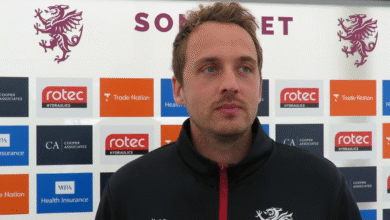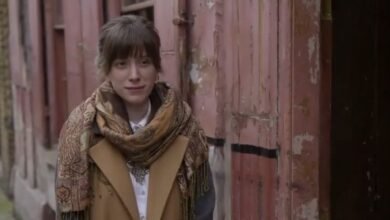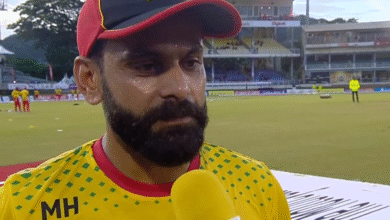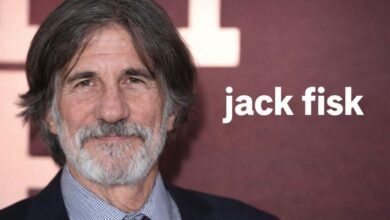Ted Hill: A Powerful Rising Star in Rugby Union with Strength, Skill, and Determination
An inspiring journey of talent, growth, and challenges in professional rugby union

Table of Contents
ToggleIntroduction
Ted Hill is a name that has steadily gained recognition in the world of rugby union. Known for his athletic ability, hardworking mindset, and strong presence on the field, he has become one of the notable English rugby union players of his generation. His journey reflects both the positive rise of talent and the difficult realities that professional athletes sometimes face.
In modern rugby, players must combine strength, speed, discipline, and intelligence. Ted Hill represents that balance well, showing why he is considered an important figure in English rugby union. His career continues to grow, and fans closely follow his performances at club level and beyond.
Quick Bio
| Detail | Information |
|---|---|
| Full Name | Edward “Ted” Hill |
| Known As | Ted Hill |
| Date of Birth | 26 March 1999 |
| Age | 26 years old (as of 2025) |
| Birthplace | Worcester, England |
| Nationality | English |
| Profession | Rugby union player |
| Position | Flanker / Back-row forward |
| Current Club | Bath Rugby |
Early Life and Background
Ted Hill was born in Worcester, England, a city with a strong sporting culture and deep rugby roots. Growing up in such an environment helped shape his early interest in rugby union. From a young age, he showed dedication to sport and developed the physical and mental qualities required for rugby.
His early years were marked by steady progress through youth rugby systems. Like many professional rugby union players, his path required discipline, commitment, and constant improvement. These formative experiences played a key role in preparing him for professional competition.
Ted Hill’s Start in Rugby Union
Ted Hill’s rugby journey began through structured development programs, where his talent quickly became noticeable. His rise was not sudden but built on consistent effort and strong performances.
He joined the Worcester Warriors academy, one of the respected rugby development systems in England. The academy environment allowed him to train at a high level, improve his technical skills, and gain experience against competitive opponents.
This early stage of his career laid the foundation for his future success as a professional rugby union player.
Professional Career Breakthrough
Worcester Warriors Debut
Ted Hill made his professional debut for Worcester Warriors in 2017. This was an important milestone, as playing in the Premiership requires both physical readiness and tactical understanding.
At Worcester, he developed into a reliable back-row player. His performances demonstrated his versatility, work rate, and ability to compete at the highest domestic level. Supporters admired his energy and commitment on the pitch.
However, his time at Worcester was also shaped by challenges faced by the club, showing that professional sport includes both success and uncertainty.
Move to Bath Rugby
In 2022, Ted Hill joined Bath Rugby. This transfer marked a significant step forward in his career. Bath is one of England’s historic rugby clubs, known for competing at a high level and developing strong players.
At Bath Rugby, Hill continued to grow as an athlete and professional. His presence strengthened the squad, and he became part of their Premiership campaigns.
This move reflected both a positive opportunity for growth and a difficult transition caused by the instability of his former club.
Playing Style and Strengths
Ted Hill is primarily known as a flanker and back-row forward. These positions require a unique mix of physical strength, endurance, and tactical awareness.
Key Strengths
-
Strong tackling ability
-
High work rate across the field
-
Athletic movement and speed for a forward
-
Versatility in multiple forward roles
His playing style reflects the modern demands of rugby union, where forwards must contribute both in defense and attack.
Ted Hill’s ability to perform consistently makes him a valuable player in professional rugby.
International Recognition
Ted Hill has represented England at different levels during his career. Competing for the national side is one of the highest achievements for any rugby union player.
His involvement with England highlights his talent and potential. While international rugby is extremely competitive, Hill remains part of the wider group of players considered for future opportunities.
This recognition is a positive sign of his ongoing development and standing in English rugby.
Career Challenges and Growth
Like many athletes, Ted Hill’s career includes both achievements and obstacles. The collapse of Worcester Warriors created uncertainty for many players, including Hill. This difficult moment tested resilience and adaptability.
However, his successful move to Bath Rugby showed his ability to overcome challenges and continue progressing. This balance of positive momentum and difficult realities is part of what makes his story inspiring.
Ted Hill’s journey reminds fans that professional sport is not only about victories but also about perseverance.
Ted Hill’s Impact and Legacy So Far
Although Ted Hill is still in the early stages of his career, he has already built a reputation as a strong and promising rugby union player.
His legacy is developing through:
-
Consistent Premiership performances
-
Growth as a modern back-row forward
-
Representation at national levels
-
Inspiring resilience through career transitions
With more years ahead, his influence in rugby union is expected to expand further.
Conclusion
Ted Hill’s journey as a rugby union player reflects determination, talent, and steady progress. From his beginnings in Worcester to his current role at Bath Rugby, he has shown both the positive rise of a dedicated athlete and the negative challenges that can come with professional sport.
As he continues to develop, Ted Hill remains a key figure to watch in English rugby union. His career story is one of strength, growth, and ambition, making him an inspiring name in the sport today.
Frequently Asked Questions (FAQ)
Who is Ted Hill?
Ted Hill is an English professional rugby union player who plays as a flanker and back-row forward.
When was Ted Hill born?
Hill was born on 26 March 1999.
Which club does Ted Hill play for now?
Hill currently plays for Bath Rugby.
What position does Ted Hill play in rugby union?
He plays mainly as a flanker and back-row forward.
Did Ted Hill play for Worcester Warriors?
Yes, he began his professional career with Worcester Warriors before moving to Bath Rugby.
Has Ted Hill represented England?
Hill has represented England at various levels and has gained senior international recognition.




